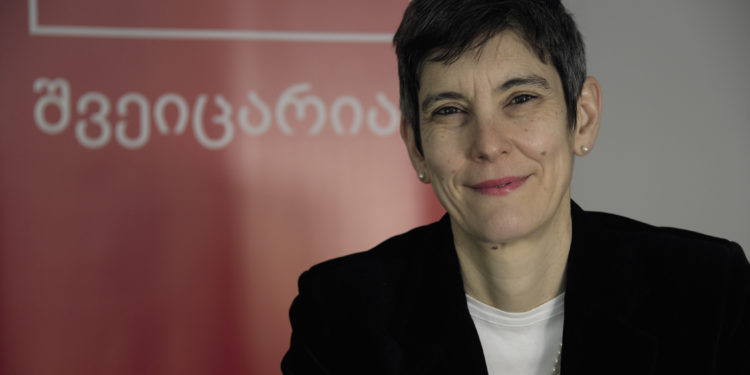The Sustainable Development Goals (SDGs) represent a shared framework for peace and prosperity, which calls for common action. While good progress had been made in implementing the 2030 Agenda since its adoption, the pandemic now threatens these achievements. Strengthened partnerships are needed to give a new momentum to the agenda.
Switzerland and Georgia are longstanding partners. In 2021, we are celebrating a double jubilee: 20 years since the Swiss Embassy was inaugurated in Tbilisi, and 25 years since the Swiss Cooperation launched its first program in Georgia. Over the years, about $200 million has been invested to support reforms. Considering the size of its population, Switzerland counts among Georgia’s largest donor countries.
Switzerland is committed to playing its part in the international cooperation effort: its International Cooperation Strategy 2021-24 is articulated around the 2030 Agenda, and its activities are selected on the basis of their potential impact on and contribution to the SDGs.
Naturally, our programs are also closely aligned with partner countries’ sustainable development strategies and SDG priorities. In the case of Georgia’s efforts towards SDG 5 (gender) for example, we have been promoting women’s economic empowerment through value-chain development projects in the agriculture sector. We helped women producers of meat and dairy products, wool, and honey to improve the quality and quantity of their goods and access to markets. We estimate that this has created more than GEL 50 million in additional income since 2017. A Swiss-funded initiative also worked with Georgia’s national statistics office to calculate gender pay gaps and to map the national social protection flaws, steps that proved instrumental for revealing gender disparities in labor relations and for defining basic social security guarantees, respectively. This contributed to Georgia’s readiness to join the Equal Pay International Coalition (EPIC) in September 2020.
Similarly, the Swiss Cooperation focused on upgrading skills and better matching the needs of the labor market in pursuit of SDGs 4 (education) and 8 (growth and jobs). The Swiss model in vocational education and training (VET) raises the interest of an increasing number of stakeholders, thanks to an effective coordination with public institutions and the strong role played by the private sector. The partnership between Switzerland and Georgia to improve the quality, accessibility and attractiveness of VET in agriculture also supported the elaboration and implementation of the new VET law, which enables more active private sector engagement and introduces a work-based learning modality. Amongst graduates from agricultural VET courses, 62% (30% of them women) found new employment.
The Swiss Cooperation is proud of these and other successes, but more remains to be done. That is why, within the framework of its new Cooperation Program for the South Caucasus 2022-25, we aim to build on these successes and expand them in the area of economic development, governance and peace, climate change and environment. Switzerland stands ready to continue its collaboration with the donor community and, of course, with Georgia, as well as other countries in the region to meet the challenges and implement the 2030 Agenda.
Blog by Danielle Meuwly, Regional Director, Swiss Cooperation for the South Caucasus














